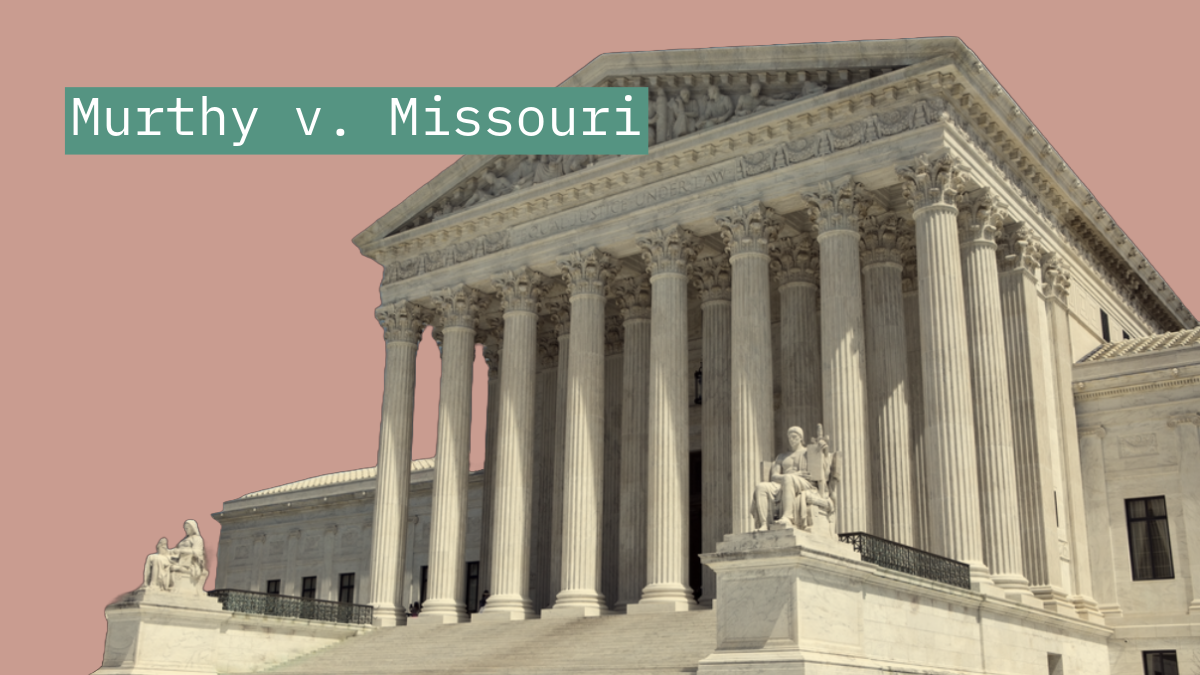Supreme Court Rejects Conspiracy Theory Behind Murthy v Missouri
Ben Lennett, Justin Hendrix, Gabby Miller / Jun 26, 2024
In 6-3 ruling on the "jawboning" case, the Supreme Court found the plaintiffs failed to establish standing to sue.
Today, the US Supreme Court ruled in favor of the Biden Administration in Murthy v. Missouri. In a 6-3 ruling, the Court reversed a decision by the Court of Appeals for the Fifth Circuit that had found that the administration had violated the plaintiffs’ First Amendment rights, finding instead that the plaintiffs did not have standing to bring the case. "Neither the individual nor the state plaintiffs have established Article III standing to seek an injunction against any defendant," the decision says.
Murthy centered around whether the Biden administration violated the First Amendment in its efforts to limit the spread of COVID-19 misinformation online. In July 2021, after US Surgeon General Vivek Murthy COVID-19 misinformation a threat to public health, President Biden told reporters that "the only pandemic we have is among the unvaccinated." He blamed Facebook for circulating and promoting COVID-19 vaccine hesitancy, saying publicly, "They’re killing people." Behind the scenes, Biden’s team and other federal agencies, like the Centers for Disease Control, were directly communicating with platform executives about content that they perceived as harmful to public health.
In May 2022, the states of Missouri and Louisiana filed a lawsuit, alleging that this open line of communication was overt government strong-arming, or jawboning, that gave rise to “open and explicit censorship programs.” It further claimed the Biden administration colluded with social media companies to suppress speech under the guise of halting dis- and misinformation. A District Court ruled in favor of the states, issuing a partial preliminary injunction on merits that the plaintiffs are likely to succeed “in establishing that the Government has used its power to silence the opposition.” The Fifth Circuit largely upheld the injunction and the central premise that the Biden Administration's actions had violated free speech rights under the First Amendment.
The majority opinion offers a rebuke to the Fifth Circuit, which relied on a menagerie of materials in its decision. “The Fifth Circuit, by attributing every platform decision at least in part to the defendants, glossed over complexities in the evidence,” it reads. "The Fifth Circuit also erred by treating the defendants, plaintiffs, and platforms each as a unified whole."
Related Reading:
- Supreme Court Justices Question Standing, Evidence in Murthy v. Missouri
- First Amendment Defenders and the Supreme Court Should Reject the Jawboning Bogeyman
- A Conspiracy Theory Goes to the Supreme Court: How Did Murthy v Missouri Get This Far?
The decision, authored by Justice Barrett, is also a rebuke to the plaintiffs and their allies on the right, who saw the fact pattern presented in the case as evidence of a “censorship industrial complex.” The majority opinion recognizes that "while the record reflects that the Government defendants played a role in at least some of the platforms’ moderation choices, the evidence indicates that the platforms had independent incentives to moderate content and often exercised their own judgment." It points out there is no evidence of an ongoing pressure campaign, so "it is entirely speculative that the platforms’ future moderation decisions will be attributable, even in part, to the defendants."
The court’s decision was not unexpected, given the oral arguments in the case. During oral arguments back in March, the justices largely focused on whether the plaintiffs could establish standing, which requires a party to prove that they suffered direct injury and have a stake in the lawsuit’s outcome. For example, Justice Sonia Sotomayor harshly criticized the plaintiff’s counsel. “I have such a problem with your brief counselor. You omit information that changes the content of your claims. You attribute things to people who it didn't happen to,” Justice Sotomayor said in March. “I don't know what to make of all this, I'm not sure how we get to prove direct injury in any way,” she added.
The majority decision echoed these critiques, offering that the “one-step-removed, anticipatory nature of the plaintiffs’ alleged injuries presents... challenges" and questioning "whether the plaintiffs have demonstrated traceability for their past injuries."
This was not a universal view on the court, as Justice Samuel Alito embraced the lower courts’ rulings that the platforms’ actions were traceable to the government. Alito authored the dissenting opinion, which Justice Thomas and Gorsuch joined. The dissent argues, "If the lower courts’ assessment of the voluminous record is correct, this is one of the most important free speech cases to reach this Court in years."
As the majority opinion and any fair assessment of the record suggests, the lower court’s assessment was, in fact, not correct.
Authors


